 In 1939, WFNC became Fayetteville’s first radio station. Ever since then, North Carolina small businesses in the Sandhills have depended on radio advertising to market their goods and services.
In 1939, WFNC became Fayetteville’s first radio station. Ever since then, North Carolina small businesses in the Sandhills have depended on radio advertising to market their goods and services.
“Although the media landscape has changed, no matter how you look at it,” says James Grafstrom, General Manager of the Crown Complex in Fayetteville, “radio is still in the forefront. People are in their cars every day whether they going to work or coming home. During that time, they are listening to Fayetteville radio. They might be listening to a rock station; a pop station; a rap station; a talk station; or a county station. But the bottom line is they are listening.”
“I have no doubt if we stopped advertising on Fayetteville radio,” adds Gary Brown, General Sales Manager of Powers Swain Chevrolet, “our sales would drop off.”
There are 5 measurable reasons why advertising on Fayetteville radio is so remarkably effective for local small business owners.
1. Reach. According to a study by Nielsen, a company that analyzes the media habits and consumer behavior, when it comes to driving sales, the number of people who hear the ad is the most important media-related component of an advertising campaign. No other advertising available to Fayetteville small business owners reaches more people than radio. Currently, 92% of all consumers tune-into their favorite Fayetteville radio stations. This is substantially more than watch local TV; read a local newspaper; or connect to streaming audio services.
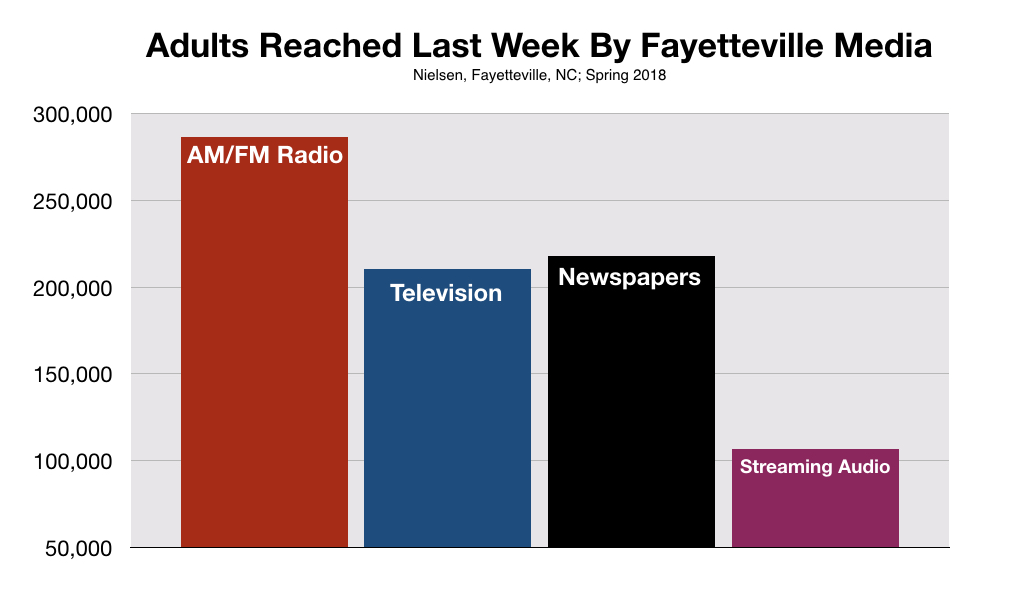
Furthermore, radio appeals to everyone. This allows local businesses to target anyone including Generation X, Y, and Z. Boomers. Millennials. Everybody.
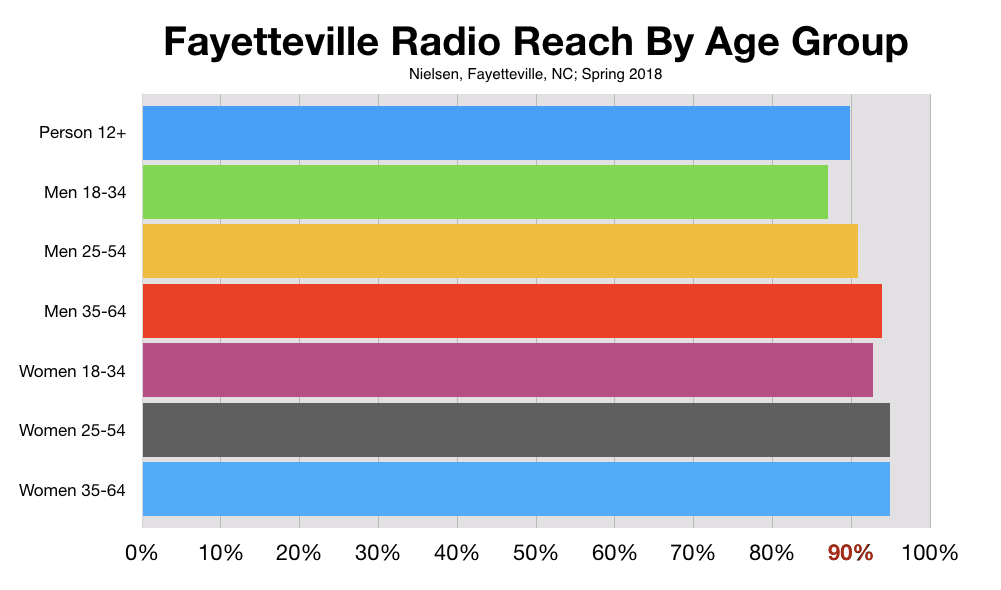
“Repetition,” writes Dr. Douglas Hintzman form the University of Oregon, “is one of the most powerful variables affecting memory.”
The typical Fayetteville consumer listens to the radio just about 2 hours every week, according to Nielsen. Most of that listening is confined to just or two stations. This allows advertisers to easily locate their target audience and then repeat an advertising message enough times to be remembered during the window-of-opportunity to make a sale.
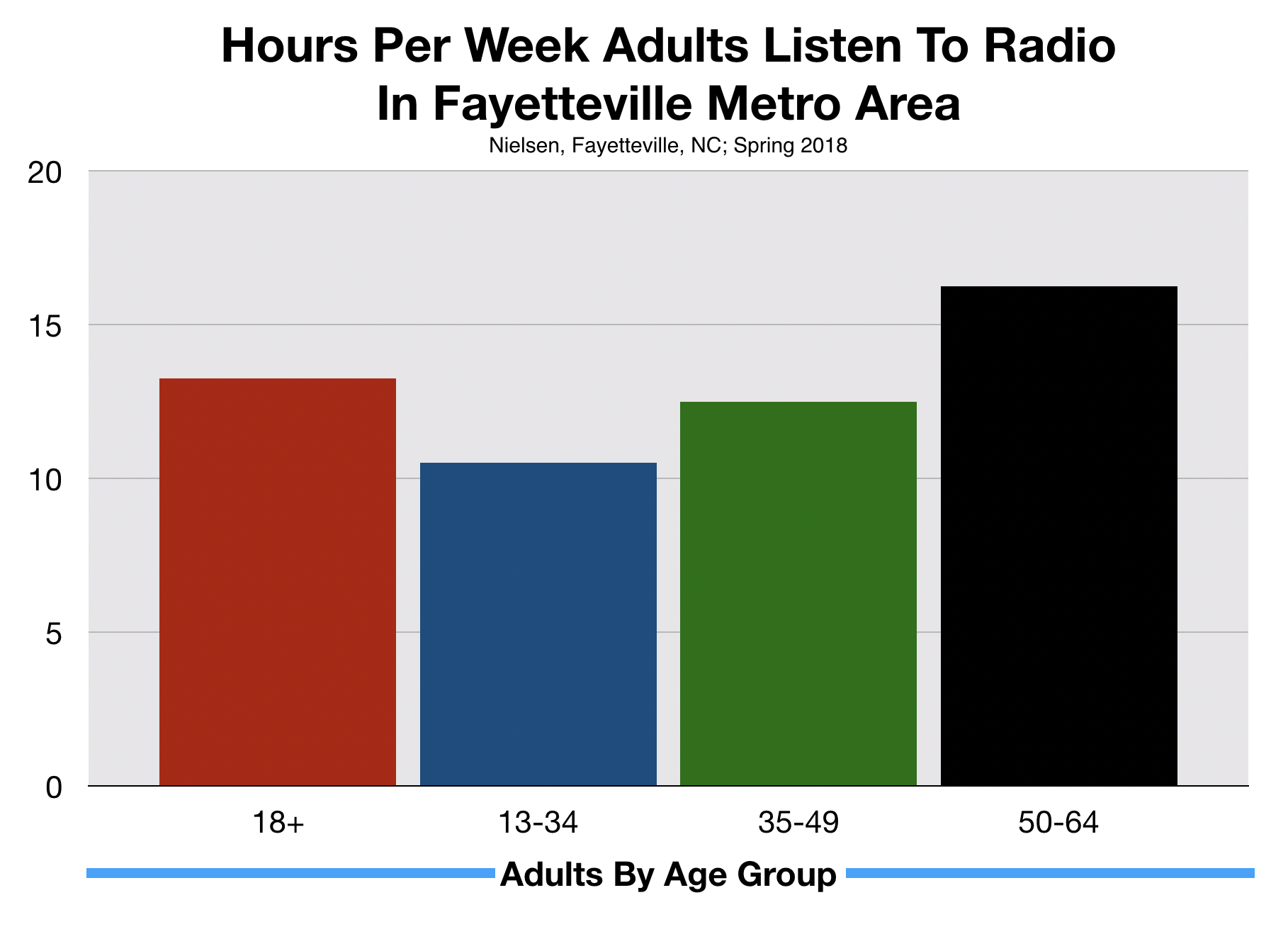
No other advertising medium competes with radio when it comes to frequency. The typical TV viewer will tune-in to more than 20 channels during the course of a week. At best, local newspapers afford the opportunity to reach readers only 1 time per day.
There is no magic number for the amount of frequency needed. It depends on several factors including competitor’s advertising efforts, the strength of the creative, and the call to action.
Several studies by Nielsen, in fact, do indicate that when advertising on radio, higher levels of frequency create an exponentially greater lift to sales.
A recent study revealed that a radio advertising campaign conducted by an auto aftermarket retailer delivered $21 in increased sales for every $1 spent on commercials.
According to Westwood One who commissioned the study, every exposure to the ad contributed to sales lift.
3. Recall. Local Ad Recall, a research company that measures the effectiveness of advertising, found that brand recall was five times higher for companies that advertised on radio versus the companies that did not. Consequently, Fayetteville small business owners who advertise on radio have a much better chance of being recalled and, therefore, frequented by prospective customers than companies that do not advertise on radio.
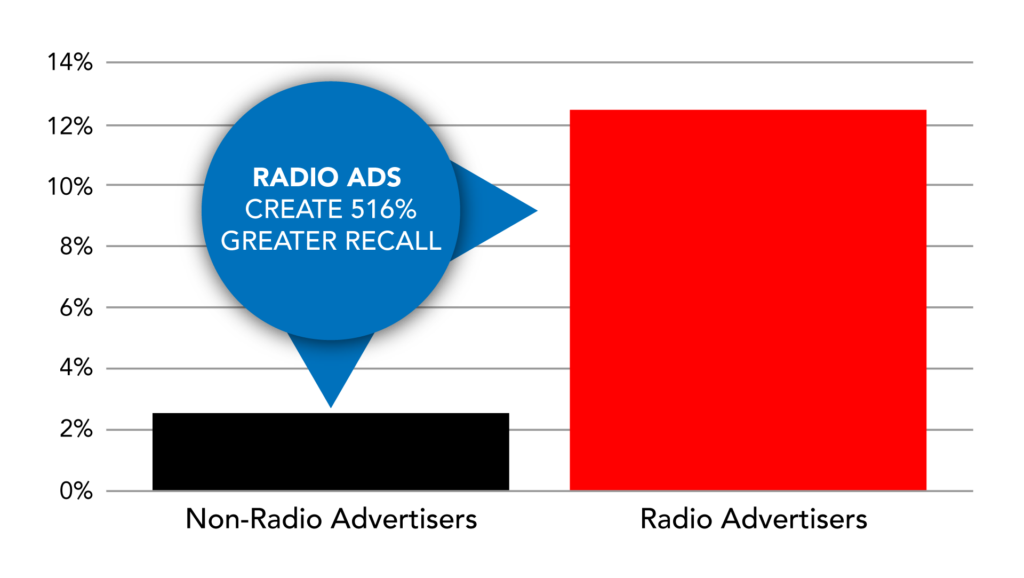
Nielsen found similar results. Across several different business categories, on average, radio advertising improved recall by 82%. The businesses measured were a health and beauty company; an information technologies company; an auto aftermarket retailer; a motorcycle company; and a mobile app company.
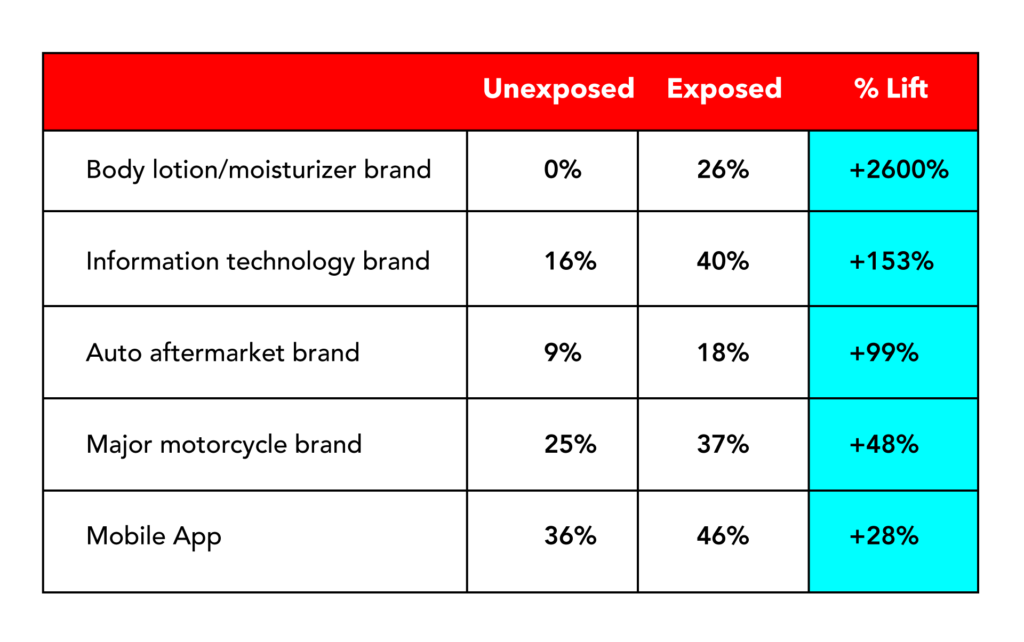
According to Advertising Age Magazine, when executed correctly, radio advertising can deliver a greater ROI for a local business than investing in TV, digital, or social media ads.
Over the past few years, Nielsen has conducted more than 20 studies to determine how much ROI a business owner could expect when advertising on radio. In every case, radio’s ROI was, in the words of Advertising Age, "Eye-popping."
The most recent ROI study released by Nielsen is no exception. According to Westwood One, the company that commissioned this latest study, a radio campaign for a men's personal-care brand produced $11.96 in sales-lift for every $1.00 invested in radio advertising.
Overall, according to Nielsen, among all of the studies conducted, radio ads produce a very impressive 10-time return-on-investment.
RADIO ADVERTISING ROI BY BRAND CATEGORY
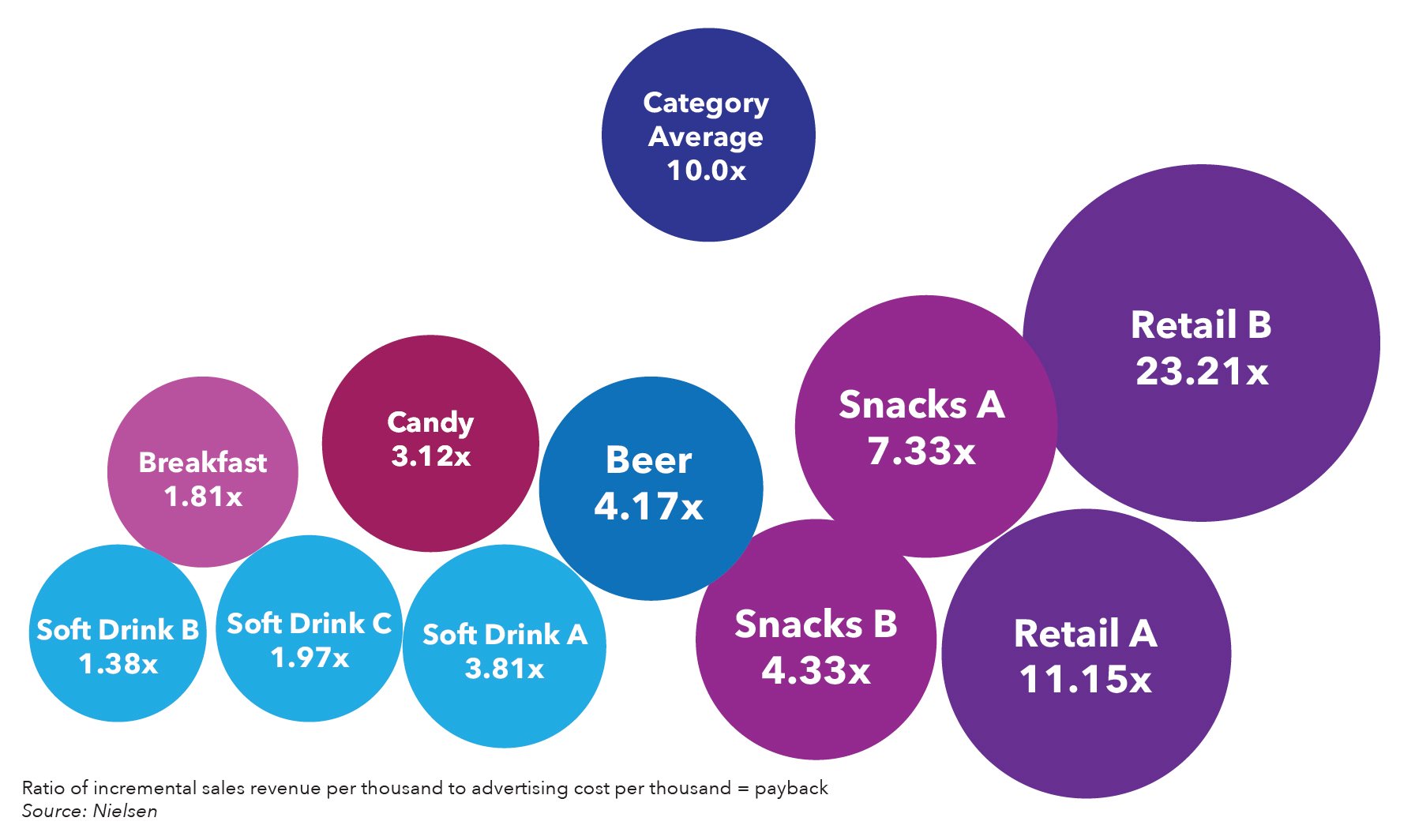
Doug Schoen wrote in Forbes Magazine about radio advertising’s superior return-on-investment.
“The implications of results like these are profound for the communications and advertising industries,” Mr. Schoen said, “and as a marketing professional with over 35 years of experience, I found this data nothing short of fascinating. It’s quite clear that we should all be paying more attention to radio, its reach and potential to help our businesses. It’s doing the job with expert efficiency.”
5. Internet Traffic. Over 90% of consumers depend on the internet for some portion of their buying decisions. Fayetteville small business owners can take advantage of radio advertising’s ability to profoundly improve online search activity.
According to research by Sequent Partners, radio advertising created a 29% increase in online search activity for the product categories and brands that were involved in the study.
The study measured the website visitation increases generated by 2100 local radio ads across six different product categories. The results were definitive. Radio drove listeners to the web for more information.
The study first looked at the typical number of Google searches that typically occur for the subject product category and brands. This information creates a baseline of pre-radio expectations.
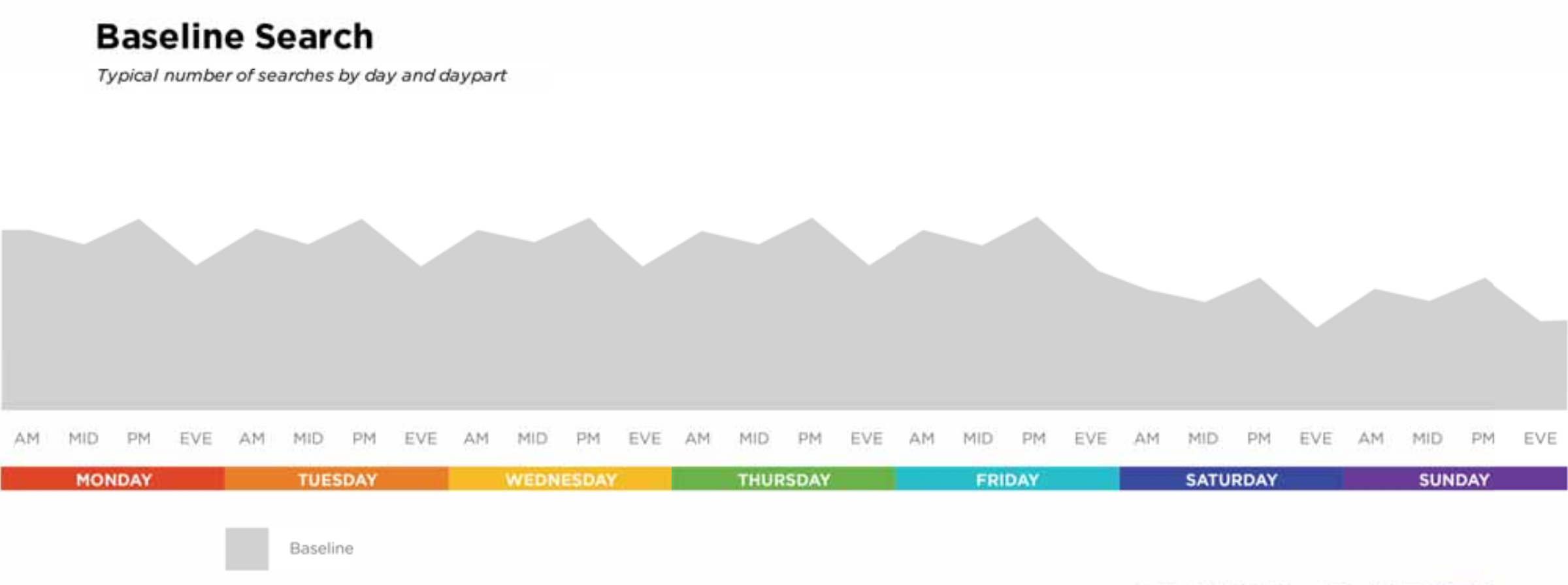
Next, search activity was measured for the times when radio advertising occurred for the subject categories and brands. The results were overlaid on the baseline.
The green bars above, indicate the days and time radio advertising aired. The green peaks highlight the incremental search that is attributable to radio advertising.
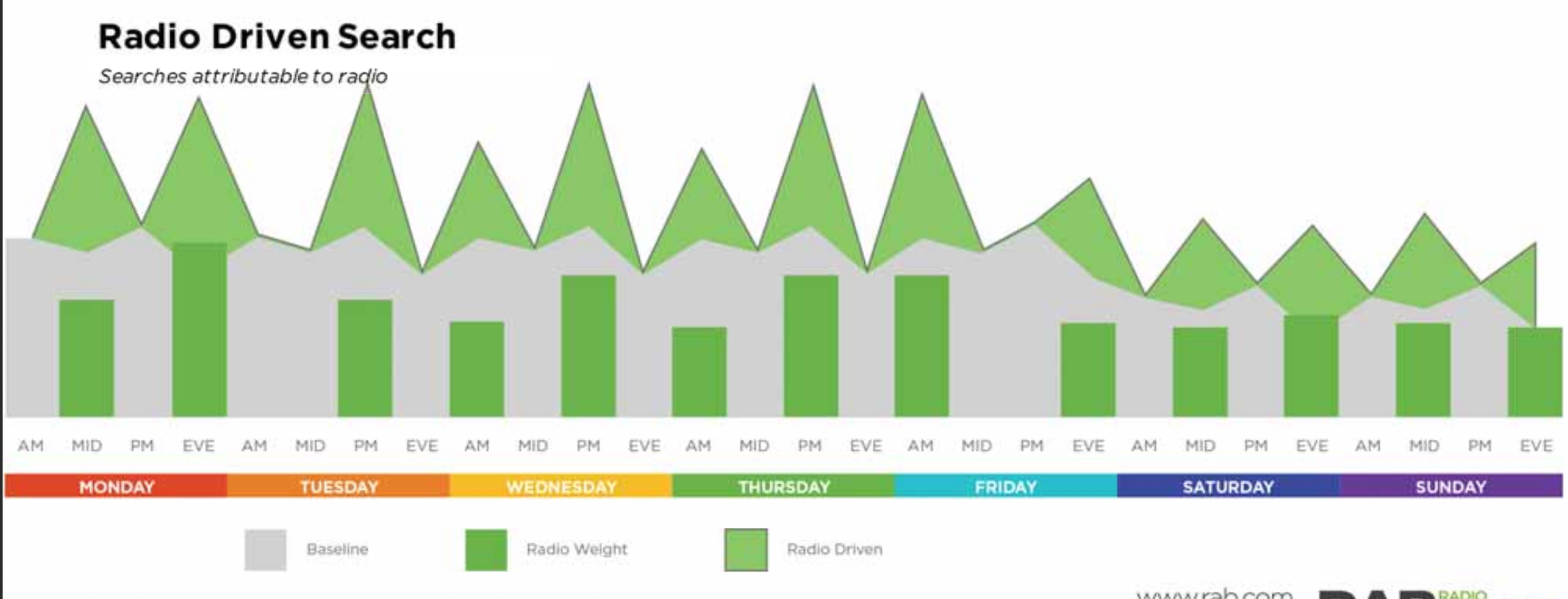
Most importantly, radio proved to be successful for every brand involved in the study.
- Automotive Brand: +7%
- E-Commerce Brand: +9%
- Wireless Communication: +18%
- Auto Aftermarket Retailer: +65%
- Insurance: +73%
- Jewelry: +370%
Joe Quigg, owner of Ed’s Tires is convinced. Advertising on Fayetteville radio is the only medium he currently uses to promote his business “Every week that goes by,” he says, “five or six customers tell me they came in because they heard us on the radio.”
“When it comes to spending money, I am very conservative,” continues Mr. Quigg. “I don’t like spending money I don’t have to. Our sales have grown every year since I have owned the business. Radio has been a big spend for us, but it has also been a big part of our growth. I wouldn’t be willing to do without it.”



